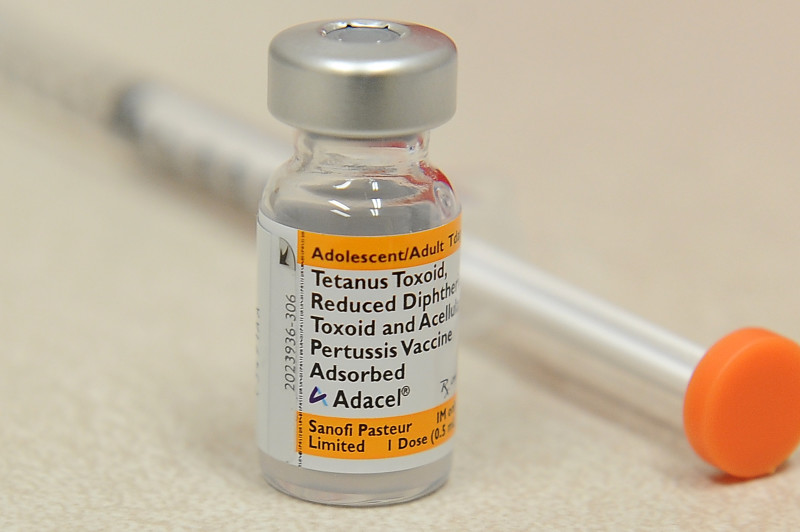"The take-home message is that the waning is there," said Dr. Art Reingold, a UC Berkeley professor of public health. "You're protected initially but it wanes over time."
It doesn't mean anyone should skip the vaccine. Someone who is vaccinated, but becomes sick with whooping cough, should have a less severe course of illness.
The authors said that new vaccines are "likely needed to reduce the burden of pertussis disease." But Reingold, who leads the CDC's Advisory Committee on Immunization Practices (ACIP) group on pertussis, said he doesn't know of any pertussis vaccine development in the pipeline.
He also said that adding another dose of the vaccine at a later age would not help much, based on research that was presented to the ACIP group. "(An additional dose) would have very little impact on pertussis," he said, "in terms of cases prevented."
The most severe cases are in very young infants, Reingold said. Babies cannot be vaccinated until they are 2 months old. To protect newborns before they can be vaccinated, the CDC recommends that women be vaccinated during the last trimester of every pregnancy -- even if they received a vaccine before they became pregnant.
"Babies will be born with circulating antibodies," Reingold said, "and there's pretty good evidence that that will reduce the risk of hospitalization and death in babies."
In an accompanying commentary, Dr. James Cherry at UCLA said the findings about Tdap effectiveness were "disappointing," but he also pointed to other drivers of recent pertussis outbreaks, including increased awareness and better, more sensitive, testing.
Previous reports have shown that vaccine refusal played a role in the 2010 whooping cough epidemic in California.
Reingold also drew an interesting distinction between measles and pertussis having to do with herd immunity. If a great enough percentage of the population is immunized against measles, both individuals and the broader community are protected against outbreak. That's because the measles vaccine protects people against the virus that actually causes the measles illness.
But in pertussis, the disease is caused by toxins that are released by bacteria. The pertussis vaccine protects people against those toxins, but may not prevent you from spreading the bacteria to others -- and causing illness in them.
The outbreak of measles earlier this year was likely caused by someone who brought the disease back from abroad. Measles was eliminated in the United States in 2000.
"Pertussis is not going to go away with the current vaccine," Reingold said.
